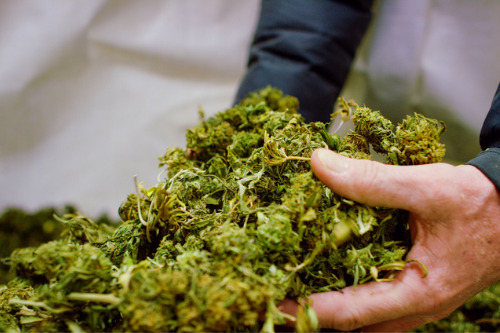

A number of cannabis factories have gone up in flames recently, leading to an increase in property claims, loss adjuster Woodgate & Clark said.
The firm has warned commercial property clients to be more vigilant to prevent fire damage to their properties.
“As lockdown measures have eased, we have seen a growing trend in fire and malicious damage claims across a number of insured property schemes which have arisen from the illegal cultivation of cannabis,” said Marie Quin, Woodgate & Clark’s head of counter-fraud.
Quinn cited a recent £1 million claim, where investigators found that the fire was caused by faulty electric wiring as a result of internal alterations made by two tenants who were growing cannabis in adjoining terraced houses.
“This was a catastrophic fire that badly damaged a block of three terraced properties, which thankfully were unoccupied at the time,” she said. “The council issued a dangerous structure notice and insisted the roof be removed and fencing erected for public safety.”
The tenancies were arranged through a managing agent, who outsourced the tenant references, which turned out to be falsified, to a third party.
Police investigations are ongoing due to suspicions that the operation may be linked to organised crime. According to Woodgate & Clark, drug dealers often employ illegal immigrants to grow cannabis in clandestine farms. During the pandemic, links to modern slavery and exploitation increased by 95%, it said.
In these farms, electricity, gas and water supply are hacked into the mains, allowing drug dealers to avoid paying for any of the utilities. The illegally bypassed electricity connections lead to an increased risk of fire.
In recent years, illegal cannabis production in the UK has shifted to small-scale domestic operations. According to official data, 94% of cannabis farms are now located in residential buildings, with around 25 farms or factories discovered by police daily.
Aside from fire damage, landlords of properties that were used for illegal cannabis farming also reported knocked out ceilings and walls, severe water damage, and damaged electrical fixtures due to unauthorised modifications.
“The pandemic reduced the number of regular landlord inspections, Quinn said. “We are warning our property clients to make doubly sure that tenants have the right credit and reference checks, and that regular inspections are reinstated, especially now the pandemic restrictions have eased. Some policies give cover for malicious damage, but others include exclusions, such as damage arising from any criminal activity or malicious damage caused by tenants.”
Woodgate & Clark provided several signs that a property may be hiding a cannabis farm:
